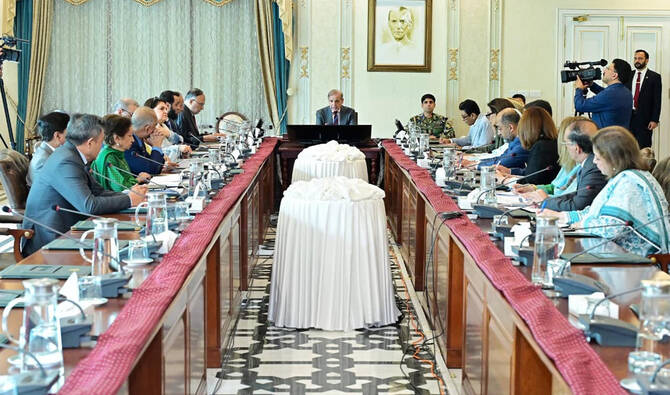In response to Pakistan’s rapidly expanding population, Prime Minister Shehbaz Sharif convened a high-level meeting today to insist on a cohesive national strategy to address population growth, framing it not as a liability but as a transformative opportunity for national development.
With Pakistan’s current annual growth rate estimated at 2.55%, the prime minister emphasized that unchecked demographic momentum could severely strain public services, infrastructure, and economic stability, particularly in densely packed urban areas like Karachi and Lahore. However, he underscored that this challenge can become a turning point if the growing population is integrated into the economy through planning and policy.
Sharif called upon provincial authorities to collaborate in crafting a rights-based, multi-sectoral policy that ensures equitable access to healthcare, education, and informed family planning. To formalize this approach, he directed the federal government to form a National Population Commission. This body will include representatives from all provinces, tasked with developing measurable targets and policy tools to guide resource allocation and population planning.
A crucial part of the strategy involves harnessing Pakistan’s demographic dividend nearly 65% of the population is under the age of 30. The prime minister described youth as a “vital and precious asset” and outlined plans to provide economic opportunities and integrate them into the national agenda. Simultaneously, he emphasized the enormous potential that lies in expanding women’s participation in the workforce, describing it as essential to strengthening the nation’s economic fabric.
Public awareness is another key pillar. Sharif underscored the importance of launching a comprehensive national awareness campaign to build understanding around population challenges in the context of economic growth and service delivery. Through media, community outreach, and educational programs, the campaign aims to shift societal attitudes around family planning and population management.
He further reaffirmed this approach’s alignment with global frameworks the strategy resonates strongly with Sustainable Development Goals and Family Planning 2030 commitments. By framing population stabilization within these international goals, Sharif emphasized Pakistan’s dedication to global norms and to making informed, human-focused policy choices.
Throughout the meeting, ministers for planning, education, health, information, and law voiced support and presented policy considerations. They collectively recognized that population management must extend beyond narrow technical solutions and become a shared national priority, supported by all levels of governance, civil society, media, and the public.
By shifting population growth from crisis mode into a managed, strategic asset, the government is setting the stage for long-term resilience. It’s a signal that policymaking in Pakistan is evolving toward inclusive, data-informed, and sustainable development planning that places citizens, especially youth and women, at the core of progress.



Comments (0)
No comments yet. Be the first to comment!
Leave a Comment